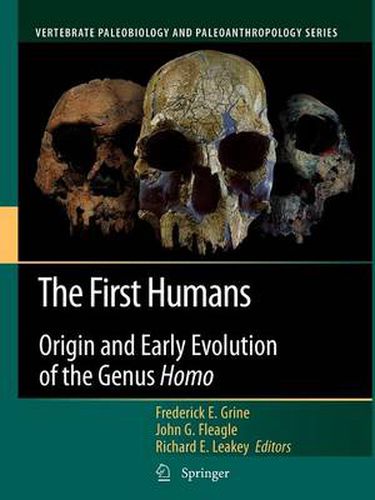Readings Newsletter
Become a Readings Member to make your shopping experience even easier.
Sign in or sign up for free!
You’re not far away from qualifying for FREE standard shipping within Australia
You’ve qualified for FREE standard shipping within Australia
The cart is loading…






This title is printed to order. This book may have been self-published. If so, we cannot guarantee the quality of the content. In the main most books will have gone through the editing process however some may not. We therefore suggest that you be aware of this before ordering this book. If in doubt check either the author or publisher’s details as we are unable to accept any returns unless they are faulty. Please contact us if you have any questions.
There are some issues in human paleontology that seem to be timeless. Most deal with the origin and early evolution of our own genus - something about which we should care. Some of these issues pertain to taxonomy and systematics. How many species of Homo were there in the Pliocene and Pleistocene? How do we identify the earliest members the genus Homo? If there is more than one Plio-Pleistocene species, how do they relate to one another, and where and when did they evolve? Other issues relate to questions about body size, proportions and the functional adaptations of the locomotor skeleton. When did the human postcranial Bauplan evolve, and for what reasons? What behaviors (and what behavioral limitations) can be inferred from the postcranial bones that have been attributed to Homo habilis and Homo erectus? Still other issues relate to growth, development and life history strategies, and the biological and archeological evidence for diet and behavior in early Homo. It is often argued that dietary change played an important role in the origin and early evolution of our genus, with stone tools opening up scavenging and hunting opportunities that would have added meat protein to the diet of Homo. Still other issues relate to the environmental and climatic context in which this genus evolved.
$9.00 standard shipping within Australia
FREE standard shipping within Australia for orders over $100.00
Express & International shipping calculated at checkout
This title is printed to order. This book may have been self-published. If so, we cannot guarantee the quality of the content. In the main most books will have gone through the editing process however some may not. We therefore suggest that you be aware of this before ordering this book. If in doubt check either the author or publisher’s details as we are unable to accept any returns unless they are faulty. Please contact us if you have any questions.
There are some issues in human paleontology that seem to be timeless. Most deal with the origin and early evolution of our own genus - something about which we should care. Some of these issues pertain to taxonomy and systematics. How many species of Homo were there in the Pliocene and Pleistocene? How do we identify the earliest members the genus Homo? If there is more than one Plio-Pleistocene species, how do they relate to one another, and where and when did they evolve? Other issues relate to questions about body size, proportions and the functional adaptations of the locomotor skeleton. When did the human postcranial Bauplan evolve, and for what reasons? What behaviors (and what behavioral limitations) can be inferred from the postcranial bones that have been attributed to Homo habilis and Homo erectus? Still other issues relate to growth, development and life history strategies, and the biological and archeological evidence for diet and behavior in early Homo. It is often argued that dietary change played an important role in the origin and early evolution of our genus, with stone tools opening up scavenging and hunting opportunities that would have added meat protein to the diet of Homo. Still other issues relate to the environmental and climatic context in which this genus evolved.